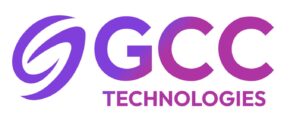In today’s highly competitive digital landscape, businesses need to develop robust SEO strategies to stand out. One key element in building an effective SEO plan is keyword mapping. This process helps connect the right keywords with specific pages on your website, allowing search engines to understand your content better. If done correctly, keyword mapping can significantly enhance your search rankings, drive more organic traffic, and increase conversions At GCC Technologies, we understand how important it is for businesses, whether startups or scaling enterprises, to implement precise and data-driven strategies for growth. Guided by our pillars—Growth, Conversions, and Communication—we ensure that your website is optimized in every way to attract the right audience. In this blog post, we’ll delve deep into the importance of keyword mapping, its benefits, best practices, and how you can leverage it for improved SEO results.
What is Keyword Mapping?
Keyword mapping is the process of assigning specific keywords or search queries to individual pages of your website. It ensures that each page has its own focused set of keywords that align with the content and search intent. For example, if you run a Dubai-based business, a page about your SEO services would target the keyword “SEO expert Dubai”, while a page about your PPC services might focus on “best SEO and PPC company“.
The key to successful keyword mapping lies in understanding search intent—the reason behind a user’s search query. By aligning each page with the right intent, you help search engines like Google understand which page to rank for a specific query.
The Benefits of Keyword Mapping in SEO
Effective keyword mapping can transform your SEO strategy by improving various aspects of your website:
- Optimized User Experience:
- A well-mapped website leads to better organization, helping users find relevant content quickly. This results in improved bounce rates and engagement.
- Improved Content Strategy:
- When keywords are properly mapped, your content creation becomes more focused. This makes it easier to target relevant search queries, ultimately boosting your rankings on search engines.
- Clearer Site Structure:
- Proper keyword mapping helps create a logical structure for your website, making it easier for search engines to crawl and index your pages effectively.
- Enhanced Conversion Rates:
- Keyword mapping helps drive more relevant traffic to your site. When the traffic aligns with the correct search intent, your chances of converting visitors into customers increase significantly.
- Avoiding Keyword Cannibalization:
- Mapping ensures that no two pages on your website compete for the same keyword. This prevents keyword cannibalization, where multiple pages target the same keyword, harming your SEO performance.
How to Conduct Effective Keyword Mapping
Here’s a step-by-step guide to help you conduct effective keyword mapping for your website:
Step 1: Keyword Research
Before mapping keywords, thorough keyword research is crucial. Use tools like Google Keyword Planner, SEMrush, and Ahrefs to identify the keywords your audience is searching for. There are two primary types of keywords to consider:
- Short-Tail Keywords (e.g., “SEO services”)
- Long-Tail Keywords (e.g., “affordable SEO expert Dubai”)
Long-tail keywords often offer lower competition and higher conversion rates.
Step 2: Categorizing Keywords
Once you’ve gathered a list of keywords, categorize them based on intent:
- Informational: Keywords related to learning about a topic (e.g., “What is SEO?”).
- Transactional: Keywords indicating purchase intent (e.g., “buy SEO services Dubai”).
- Navigational: Keywords indicating a desire to find a specific website (e.g., “GCC Technologies website”).
Step 3: Mapping Keywords to Specific Pages
Assign keywords to the most relevant pages on your website. Some pages may already exist, while others may require new content. Ensure that each page aligns with the search intent of the targeted keywords.
Best Practices for Keyword Mapping
To ensure your keyword mapping strategy is effective, consider the following best practices:
- Use Variations of Keywords:
- Avoid keyword stuffing. Instead, use keyword variations and synonyms naturally throughout your content.
- Maintain Relevance:
- Ensure that the mapped keyword is relevant to the content of the page. Irrelevant keyword mapping can negatively impact user experience and SEO.
- Optimize Title Tags & Meta Descriptions:
- Ensure your title tags and meta descriptions contain the mapped keywords. These elements play a vital role in improving your Click-Through Rate (CTR).
- Focus on Long-Tail Keywords:
- Long-tail keywords are often less competitive, helping you capture highly relevant traffic. Don’t overlook their power.
- Regular Review and Update:
- SEO is constantly evolving. Regularly review your keyword mapping to ensure your pages are aligned with the latest search trends.
Keyword Mapping Tools
Several tools can assist in keyword mapping and SEO optimization:
- SEMrush: Excellent for keyword research and tracking keyword rankings.
- Mangools: Offers easy-to-use tools for keyword tracking and analysis.
- Contentoo: Helps organize content and keyword mapping efforts efficiently.
These tools can provide valuable insights into the performance of your keywords and help you optimize your pages for maximum effectiveness.
Measuring the Success of Keyword Mapping
Once you’ve implemented keyword mapping, it’s crucial to track its success. Use Google Analytics and Google Search Console to monitor key metrics such as:
- Organic Traffic: Measure how much traffic is coming from organic search.
- Bounce Rate: High bounce rates could indicate that users aren’t finding what they’re looking for.
- Keyword Rankings: Track how well your mapped keywords rank on search engine result pages (SERPs).
Common Mistakes in Keyword Mapping and How to Avoid Them
While keyword mapping is essential for SEO, there are some common mistakes you should avoid:
- Overusing a Single Keyword:
- Repeating the same keyword across multiple pages can lead to keyword cannibalization. Ensure each page targets unique keywords.
- Neglecting Search Intent:
- Keyword mapping is not just about choosing a keyword. It’s about understanding the user intent behind the keyword and ensuring your page satisfies that intent.
- Failure to Update Keyword Mapping:
- SEO trends change over time. Regularly update your keyword mapping strategy to reflect these changes.
- SEO trends change over time. Regularly update your keyword mapping strategy to reflect these changes.
FAQs About Keyword Mapping
1. What is the difference between short-tail and long-tail keywords in keyword mapping?
Short-tail keywords are broad terms with high search volume, but they are often more competitive. Long-tail keywords are more specific and generally have lower competition, which can help target a more relevant audience.
2. How often should I update my keyword mapping strategy?
It’s essential to review your keyword mapping strategy regularly—every 3-6 months is a good rule of thumb. SEO trends and user search behavior can change over time, so it’s important to adapt your strategy accordingly.
3. How does keyword mapping affect my website’s SEO performance?
Proper keyword mapping helps search engines understand your content better, improving search rankings and driving relevant traffic. It can also enhance user experience by ensuring that users land on the right pages based on their search queries.
Conclusion
Keyword mapping is an essential part of SEO that ensures your website content aligns with the right search intent, helping both users and search engines find relevant pages quickly. By following best practices and utilizing effective keyword research tools, you can significantly improve your website’s visibility and drive more qualified traffic.
At GCC Technologies, we specialize in turning clear vision into measurable marketing results. If you’re looking for expert guidance on SEO in Dubai, our team of SEO specialists in Dubai is ready to help you craft a keyword strategy that delivers results. Whether you’re a startup or an established enterprise, we can help you build long-term brand value through our tailored SEO and digital marketing strategies.
Ready to boost your SEO and grow your business? Contact GCC Technologies for expert SEO services in Dubai today!




















